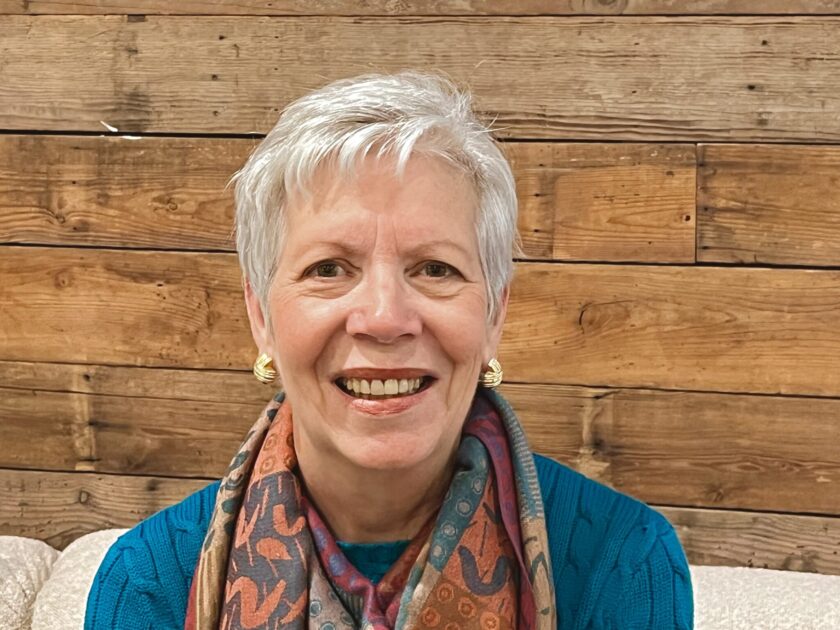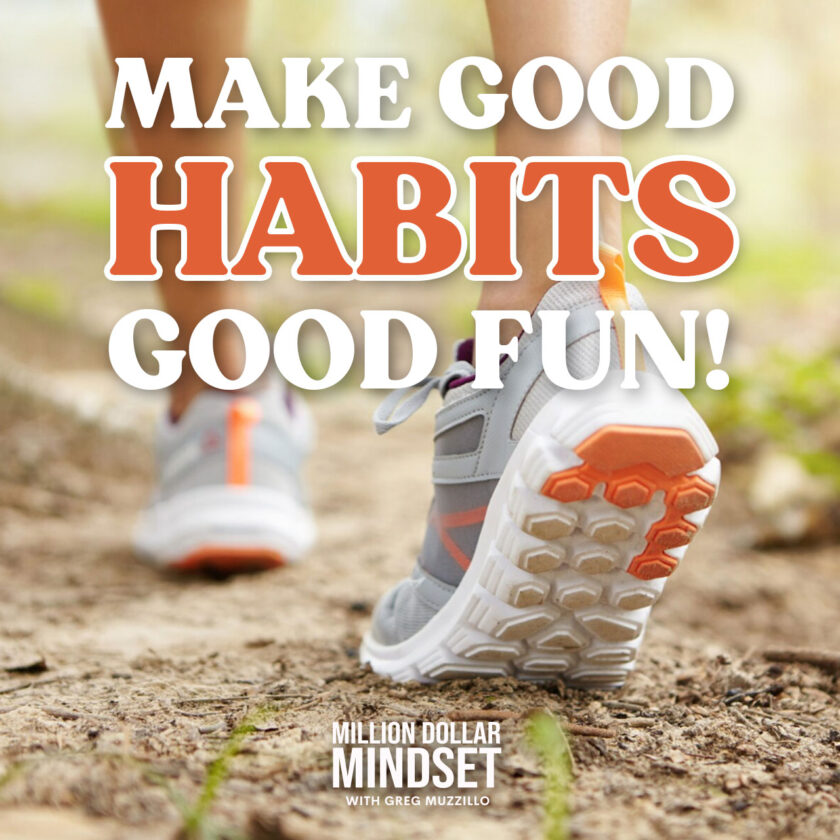Had fate not put its thumb on the scale, CJ Schmidt would’ve been a Jerry Maguire-esque sports agent, and reveled in every second of it. “I’ve always loved sports – I’ve played on teams since I was a kid, and through college was considering going into a career in sports management and being an agent,” he says. “At one time, I definitely could have envisioned living that life.”
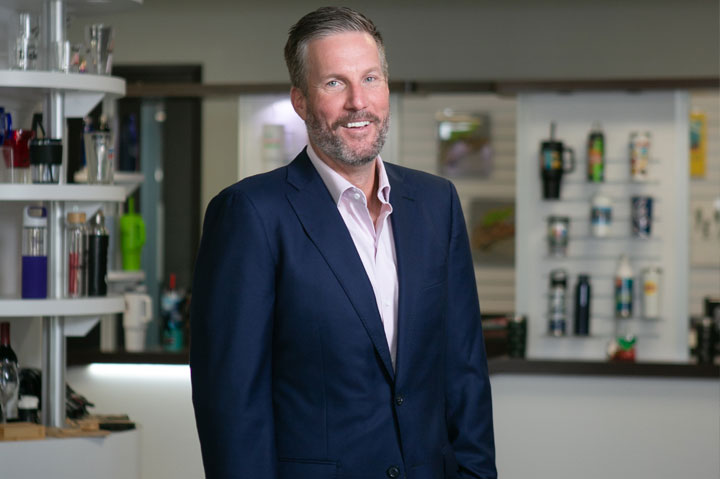
Perhaps, had he not grown up with one of the most well-known last names in the promo industry, at one of the most storied companies in the business that his parents cultivated into the multi-faceted juggernaut it is today.
But for Schmidt – now so identifiable in his own right that the promo world literally recognizes him by his two-initial first name alone – he’s become the catalyst and change agent the company, and the industry, never could have expected.
From Little League to the Bigs
Counselor Top 40 supplier Hit Promotional Products (asi/61125) was founded in the early 1950s and originally based in Manhattan; in 1977 the Schmidt family – CJ’s grandfather and dad – purchased the business and relocated it to Florida, where it’s so ingrained today.
As the third generation of Schmidts to helm the company, it would be leaning into a lazy archetype to say that CJ, as the younger son of the company’s owner, was a “Tommy Boy” caricature – all privilege and perks, without the time, sweat and skin in the game. But his dad, Bill Schmidt Sr., and mom, Liz, presciently knew that he needed purpose and focus, so when he was in grade school, CJ would come to the office and stuff envelopes and pack boxes, continuing throughout high school and college summers. Hit is the only place he’s eve

r worked, and many of the employees have known him since he was a child.

Schmidt attended the University of Florida, majoring in business and minoring in mass communications. “Informally, I was working like 20 hours a week helping on quotes for Hit orders when I was a junior in college, kind of like an internship, working for beer money,” he laughs. “I started as inside sales manager the Monday after I graduated from college.”
Now CEO of the company, Schmidt – who’ll be 42 in November – appreciates that his parents never pressured him to join the family business, instead letting it happen organically. “When I started going to Asia with my dad when I was on school vacation, that was it – I was hooked. There wasn’t even a question that I’d be in the business.”
He remembers early on when he’d be at the Canton Fair in Guangzhou, China – the largest sourcing show in the world – that his dad would get the company’s financials faxed to him every day (“which probably cost more than our hotel room,” Schmidt says) and they’d read them on the 45-minute bus ride from the fairground to the hotel. “Even now I read the reports every day because they give me so much insight to what’s going on.”
Interestingly, as he and his wife, Maddie, have four young children of their own – Charlotte, 5; Blake, 4; William, 2; and their infant daughter, Scottie (named after one of the whip-smart female lawyers in the TV show Suits) – people often ask him if he’d like to see his son take over the business one day. “And I always say, ‘Why not one of my daughters?’ I’d love that… And one of them, Blake, her mind works just like mine … she’s always processing things and remembers everything.”
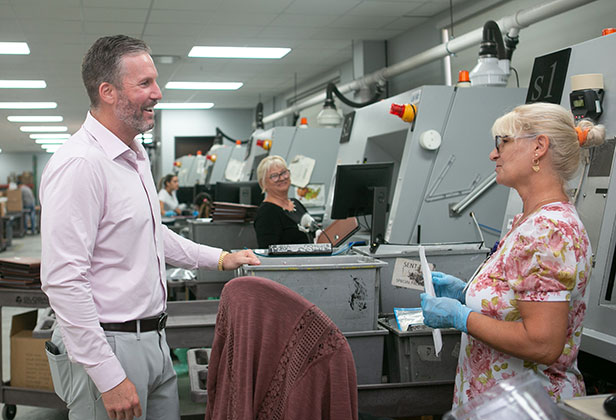
It’s a compelling juxtaposition to Schmidt’s former perceived persona – a jock presiding over a bro culture at the top of Hit’s management team. To an outside observer, for a while, he appeared to be in a perpetual episode of Entourage, cruising through life on a sea of champagne bubbles and party foam as he hosted epic annual guys’ trips to the Masters, one of pro golf’s premier events held in Augusta, GA, every April. But becoming a Girl Dad seems to have softened his edges and sharpened his focus in that now – as the person who’s spent his life pole-vaulting over every expectation laid before him – he’s taken his family’s legacy to a level that’s nothing short of stunning.
“It’s rare to see someone step out of the shadow of business-founding parents that helped grow and define this industry, but CJ has done that with a keen focus on where the market is and where it needs to be,” says Terry McGuire, senior vice president of Counselor Top 40 distributor HALO Branded Solutions (asi/356000). “The key to his success is worrying less about what his competitors may or may not be doing, instead focusing completely on what will help Hit’s customers succeed and investing in the people, strategies and resources toward that end. He’s one of the most impressive business leaders in our industry.”
McGuire then adds: “You know, a few of us toured Hit two months ago, and when we met to discuss follow-ups, I asked the team for their observations on the visit,” he recalls. “The thing that stuck out to all of us is that CJ knew most of the people who worked for him – from printers on up – and they’re all deeply affectionate about him. He’s apparently a hell of a boss, regardless of who you are, and many of those people have been there long enough to watch him grow up. I think they would run through a wall for CJ, and that’s due to his leadership.”
In a League of One’s Own
When Bill Schmidt Sr., a formidable legend in the promo industry in his own right, passed away in April of 2016, CJ – who owns 40% of Hit to Liz Schmidt’s 60%, and confirms that the company is one of the few on the Counselor Top 40 without any infusions of private equity money – took the reins of the business.
And lest you require proof that he’s one of those wunderkinds who was born with a head for business, a gut to identify and build on trends, and the cojones to take the big swings to make it all happen, consider that in the eight years since he’s been running Hit, it’s grown 100% from a $319 million promo entity in 2015 to one just under $640 million in 2023 – and that’s taking into account supply chain catastrophes, shifting consumer buying habits, spiking raw material costs, and, oh yes, a tornado that took out one of his buildings just as a once-in-a-lifetime pandemic shut down the world.
Not to put too fine a point on it, but this millennial – formerly better known for the size of his bar tabs than his perceived business acuity – shepherded 3,800 employees through all of it. And doubled the company’s revenue.
“CJ is one of the smartest people I’ve ever met in my life,” says Chris Ferriter, vice president of sales at Miami-based Sobe Promos (asi/245603), Counselor’s Distributor Entrepreneur of the Year in 2020. “He’s running a 640-million-dollar company and treats every single person he works with like his greatest customer. Under his leadership, there’s always a willingness from Hit to work with us to meet tight deadlines, and the quality of their products and customer service is out of this world. And it all starts with CJ.”
One won’t be surprised to learn – given his head down, get-it-done-at-all-costs mentality – that Schmidt has a poster of Braveheart, Mel Gibson’s rousing rendition of the Scottish revolutionary William Wallace, hanging above his desk. It makes total sense, because Schmidt puts a high premium on dedication and loyalty, as evidenced by two groups of friends – from high school and college – who Schmidt keeps close. “Believe me: they don’t care what I do for a living, what I own, what my title is or how many people work at Hit,” he notes. “They’ve known me since I was a kid and they’ve seen it all. I have a lot of good friends outside of our promo world who help me be a better person in this promo world.”

Chris Platt, Hit’s key accounts manager and one of its top reps for quite a few years now, has known Schmidt since they played basketball against each other in the 6th grade, through high school, as college roommates, and as an employee of Hit for 17 years – a relationship that’s lasted three decades in total. Platt has had front row seats to Schmidt’s transformation and isn’t at all surprised at what Schmidt has achieved and how he continues to defy expectations.
“He’s the best friend you could have – thoughtful, generous, inclusive and can be tough if he expects better from you,” Platt says. “It can be a rollercoaster working for him at times, but overall, it’s phenomenal. He sets the tone for our entire company and is by far the hardest working individual we have. So, if he sees someone not working like they should, they’ll get called out. There was a point early in my career when I made a mistake pricing out 400 umbrellas; his dad wanted to get rid of me, but CJ wouldn’t let him because he believed in me. He gives people a chance and invests in them so they can be successful on their own.”
Platt notes that Schmidt always excelled in areas like sports, trivia and school, but one that may surprise people – given his larger-than-life personality in the industry – is that while he’s always had the “play hard” half of the idiom down pat, he’s just as committed to the “work hard.” “In college when we all went out until 3 a.m., CJ was the only one to get up at 8 a.m., no matter how he felt, to go to class.” Platt recounts. “This is something I’ve tried to take from him, which is the fact that he does what he doesn’t feel like doing, when he doesn’t feel like doing it. He’s also a pretty brilliant person and makes things seem easier than they are. From understanding the distributor and end user’s needs, to the agents and vendors overseas, to product development, to financials and dealing with our banks, to intricacies within our factories, to relationships with our fellow suppliers and relationships within our company – he literally does it all.”
One area that Schmidt is quick to point to as a transformative moment in his life is meeting Maddie, and the calming, grounding effect she and their children have had on him. “I’ve gotten fairly religious over the past couple of years because of Maddie and raising a family – it’s a testament to her and I really like our pastor. He says things every week that relate to my life and our business. So, I guess my relationship with God and my wife are my two biggest accomplishments.”
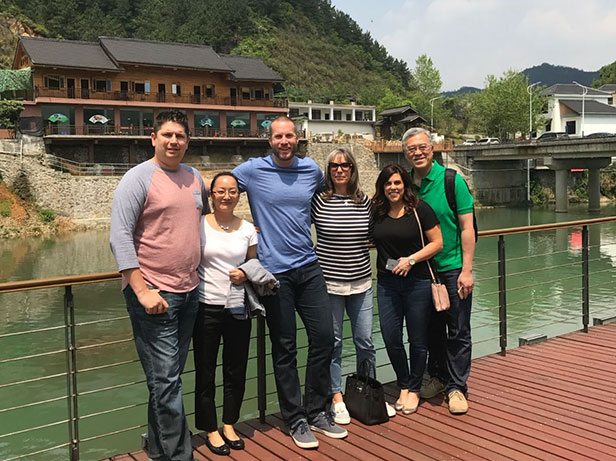
And for the man who in his heyday traveled 45 weeks out of the year and still answers most texts within 15 minutes (“I have a rule…”), he now does something once unfathomable: He decamps to the family’s lake house in upstate Michigan for six weeks during the summer, where the kids can run and play and there’s lots of quality family time. “At first, it drove me crazy… the bugs, the quiet… it’s not Florida, ya know?” says Schmidt. “But now, I absolutely love it.”
Power Hitter
Ask the Counselor Person of the Year about his pet peeves in the industry and one rises quickly to the top above all others. “The promo business is fairly simple, but we overcomplicate it so much… For example, there’s a handful of accounts we’re integrated with, but this industry should be way further along at being fully integrated. The things we do aren’t that complex,” he continues. “I always remind my team that just because an order is small, doesn’t mean it’s not impactful for someone. And those small orders often turn into larger ones with the client, so we need to figure out how to process and fulfill those orders – across and throughout the industry – so everything happens more quickly, easily and efficiently.”
And on the topic of speed and efficiency, Schmidt delves into one of his most notable, yet trickiest accomplishments: entering the print-on-demand apparel space. “Everyone thought I was crazy, and it was incredibly difficult,” Schmidt says in retrospect. “It took a lot of equipment, a lot of people and we didn’t know what the hell we were doing – two years of R&D and hits and misses. But here’s an example of why we did it: We got this big order from a distributor for the Texas State Lottery. We would do eight out of the nine items for the Texas distributor, except the T-shirts he wanted. Then he asked us if we could do them and I said sure, not knowing at all how the hell we were going to do it. So, we did 280,000 T-shirts and I realized – given their massive market share – that a lot of orders have T-shirts, so, why wouldn’t we try to do that? But man, was it hard… we learned a lot, and God bless local screen printers.”
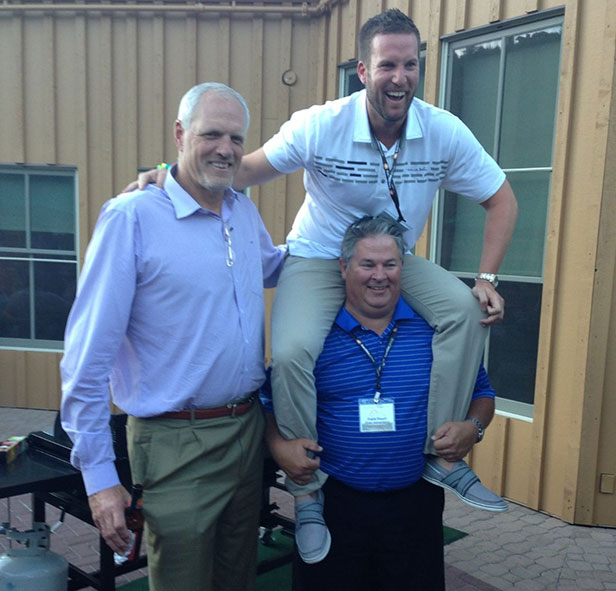
Never one to shy away from blowback and backlash, Schmidt buying the Barstool Sports business from then-Top 40 distributor Touchstone is a prime example. Because Touchstone was at risk of losing the business, Schmidt did the math, knowing how much Hit was selling to Barstool through Touchstone, and brought Mike Welker – the sales rep who owned the Barstool account and a former ASI Distributor Salesperson of the Year – over to Hit to keep the business. And then Schmidt put himself out there, front and center, in the line of fire. “As we did all of these things, I made sure to travel with our reps because if our clients were going to have something to say about the company’s strategy, I wanted to be the one to hear it, and boy, did I get lambasted. But here’s the thing: people are free to buy from who they want and I stand by all the decisions I’ve made as what’s best for Hit and our ability to serve our clients in the most efficient ways.”
In addition to that decision, yowza, did the industry do a double take with Hit’s acquisition of the Profill fulfillment business. The collective, “what the hell is CJ Schmidt up to?” was palpable.
“Profill was part of the package for us to expand our apparel printing operation into the Midwest and honestly, it was basically for free,” Schmidt recounts. “We bought a company called Wear Magic that had Profill as a fulfillment option for three distributors so they could get their shirts in the programs. It’s evolved into something completely different as Profill is outpacing the volume of our screen print and standard Hit production out of Ohio. What Profill represents is the ability for a distributor to store their goods on the shelf, print on demand, or drop-ship directly from the press on a full run of goods. We take our advanced IT presence and allow the distributor to integrate via various platforms, and essentially run their 3PL for them. It also really helps with the carbon footprint as we’re hopefully printing a product that’s already located in our Ohio facility and then just putting it on the shelf for the distributor, as opposed to the standard model where distributor ‘X’ ships to fulfillment house ‘Y’ and some sort of trucking is involved.”
In a further calculated move, Schmidt subsequently made Welker president of Profill, and maintains that the POD apparel initiative and Profill – rocky start though they both had – were game changers for Hit. “It took eight or so years,” he says, “but we’re finally there because we’re seeing considerably more distributors move programs to us.”
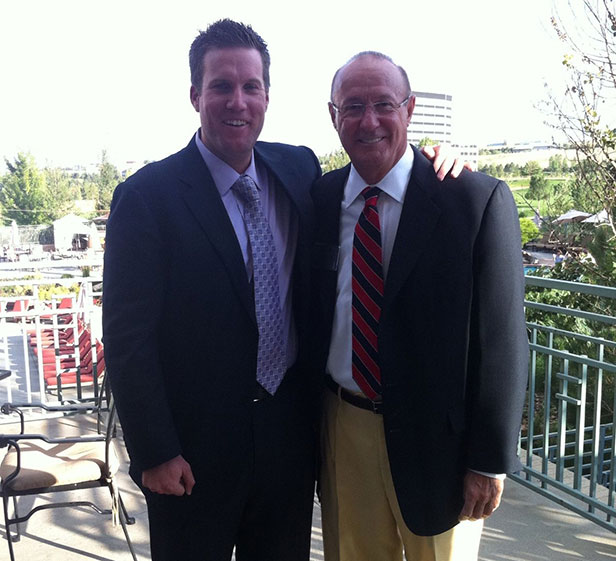
And for a company with items that can be viewed on the lower-end of the pricing spectrum, the type that tend to draw the ire of promo buyers looking for eco awareness, Schmidt acknowledges that the products he and his team are choosing for Hit’s line are being done with more care, diligence and intention. “We’re changing the structure of our core products and while it can disrupt our supply chain, we’re working toward reducing our Scope 3 emissions.”
He points out that Hit is working to offer more responsible product options, primarily through the use of recycled materials in manufacturing. “While this can lead to challenges in managing inventory, along with potential disruption in the supply chain, we feel it’s an effort worth undertaking.” He cites examples such as recycled polyester in bags and textiles, recycled polypropylene and ABS in plastic items, and recycled stainless steel in Hit’s drinkware line.
Currently, Hit has an astounding 2,500-3,000 containers of products being delivered to its four locations and 18 buildings nationwide each year, with 350-400 new items added to the line annually – though he concedes that he’s making a calculated decision to pare that number down to focus on core SKUs.
“I have to say how important our relationships in China and Hong Kong are and that’s what really started all of this, as they supported us in our business to be able to do what we do,” he shares. “So many of the people I work with in Asia, I grew up with them and my dad did business with their dads. It has to be stressed that Hit’s success is predicated on their service to us.”
He Swings, He Misses
With an incredible knack for scooping up the industry’s top talent – even if he doesn’t know at first quite what they’ll do in the company, he’ll hire promo pros with specific skillsets and find a role for them – Schmidt was self-aware enough to do some deep introspection to see what he could have done differently when former Hit President Eric Shonebarger left the company in February of this year. And for sure, there were some things. “I learned a lot from that, and it’s all on me – I had to look myself in the mirror and ask, ‘What did I do wrong here?,’” Schmidt says. “After Eric left, I sat in a room for 48 hours with members of management here and asked them what they thought we needed for the company, areas where we weren’t using our in-house talent like we should and how we can be more transparent. So now our C-suite is bigger, our bench is deeper and we’re sharing the P&L with them. When we do well, they know and when we need to step it up, they know. Everyone has defined roles and targets now. My dad had a saying, and I always remember it: ‘Build up your farm system, kid. Because you never know who’s going to be the next Mickey Mantle.’” And build it he has, hiring industry pros like Amy Rabideau earlier this month, Tiffany Tarr, Jon Norris and Kim Brockschmidt, the latter of whom formerly worked for Counselor Top 40 supplier Stormtech (asi/89864), who Schmidt negotiated a strategic partnership with last July, in which Hit would sell and decorate products from the Vancouver-based company – further solidifying Hit’s entrance into the apparel space.
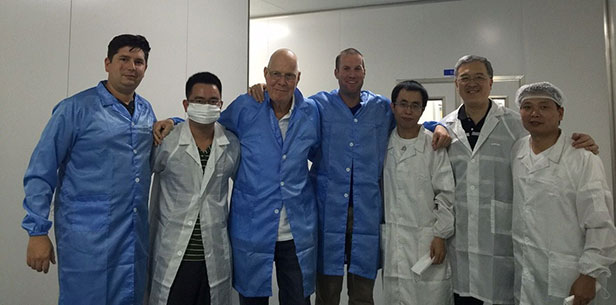
He’s not too proud to admit that he still relies on his mom’s counsel for big decisions like acquisitions, large equipment purchases and huge strategy shifts. Perhaps because he had such a formidable female role model in business in his mother, or that he’s now the dad of three daughters, the bro culture at Hit has begun to recede, with women currently making up more than 20% of the leadership roles, in executive director positions or higher.
Schmidt admits that there were times earlier in his career, when he reacted – or, more precisely, overreacted – instead of taking time and analyzing the situation. “The decision to go into apparel… It’s not a mistake now, but it could have been an epic one,” he says. “For many years until we got a handle on it, it was like, ‘Is this really worth it?’ And then everything kind of fell into place. Oh, and here’s a more recent one: We’re putting in a new transportation management system and we relied on a consultancy firm – it was like throwing money out the window. They didn’t know our business or our industry. So, we decided to move the implementation in-house, put a dedicated team on it and it’s slow-going, but we’re getting there. I give the whole project a C+, but that’s on me.”
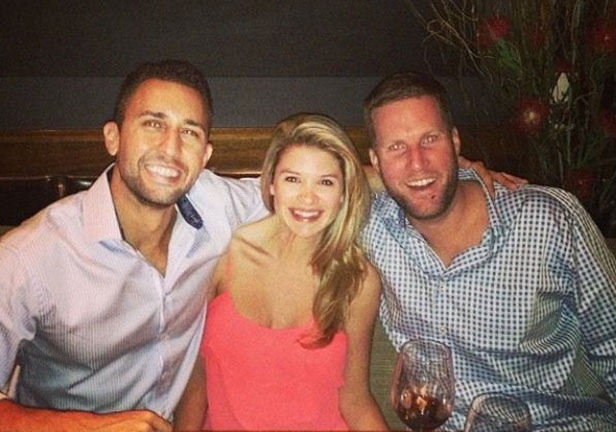
And for the person who loves to be “constantly working,” the second stage of his life is clearly one in which he’s settling into his roles as husband, father, CEO and market leader. “I’m relying on my team more and trying not to get weighed down or frustrated by the small stuff. My team is so good that our clients don’t often want or need to see me. But again, I have to give my dad props because he drilled this into me: ‘There’s no eye like an owner’s eye … we see things with the business that others can’t,’” Schmidt smiles. “And I’m here for all of it.”

